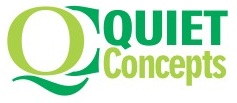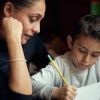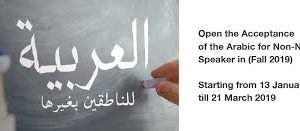THE INFLUENCE OF ARABIC HOME – CLASSES ON THE ACHIEVEMENT OF STUDENT WITH LEARNING DISABILITIES IN ARABIC LANGUAGE
₦10,000.00 ₦3,000.00
ABSTRACT
This study assessed the influence of Arabic home classes on the achievement of students with learning disability in Arabic language. The population of this study was Arabic Language teachers in East and Oyo West Local Government Area of Oyo State. The study posed three research questions and questionnaire with 20 items was used to get answers to the research questions. 120 respondents were sampled for this study. According to the research findings, it was established that the fact that most of the students attended Arabic home-classes because theirparents prefer that they attend Arabic home class than to go extra mural class. As a result, the students do attend Arabic home-classes regularly. In fact, many of the Arabic home class teachers do teach them regularly. Also, there is a relationship between what they do learn in Arabic home classes and that of the school. The finding shows that Arabic home classes used to serve as revision to what they have learnt in school and Arabic home classes do make Arabic language easier for them to learn in school. This shows that Arabic home classes do assist them in speaking Arabic language fluently. Also, many of them confirmed that the Arabic texts they are using to learn Arabic at home class is enhancing their Arabic language and Arabic language assignment in school. In fact, explaining Arabic language in mother tongue at home Arabic class do aid most of the students understanding of Arabic language and most of the students have seen positive effects in their academic performance due to Arabic home class they were attending. Also, most of the students affirmed that Arabic home class does not make them to lose interest in western education. Also, most of the students do not used to have time to revise what they have learnt in school due to Arabic home class and most of them do not used to mingle with opposite sex in Arabic home class. Also, average number of the students used to learn bad attitudes and vulgar language from their mates in Arabic home class. Even, most of the students affirmed that it is easy to become stubborn due to the way Arabic home class teacher used to treat them because the teachers used to beat them on any mistake they made at Arabic home class.
Description
CHAPTER ONE
1.0 INTRODUCTION
1.1 Background to the Study
Language remains a complex multifunctional phenomenon that facilitates human communication. The utilities of foreign language learning transcend the benefit of obtaining an academic qualification for employment. Foreign language learning is now construed as a facilitator of globalization and a strong vehicle of fostering world peace and intercultural understanding in a world of extreme diversities. Emenajo (2005) states that the de facto National Policy on Languages in education recognises the multidimensional, multi-lingual three tier political-polity which tries to capture the multi-ethnic and, ipso facto, multi-lingual polity which Berlin and the British have hammered into a rough-hewn existence. Nigerian language in education is in three forms: L1 is a Nigerian Language; L2 is English Language and L3 is either another Nigerian Language, French or Arabic. Whereas most Southerners who are non-Muslims will have French as L3, most Northerners who are Muslims will have Arabic as L3.
However, Hassan (2015) states explains that the revision of the National Policy on Education in 2004 in tune with the Universal Basic Education witnessed the emergence of the new Primary School Curriculum. The curriculum suggested a minimum of three periods per week for foreign languages for effective teaching. He states further that until 2015, Islamic as well as Arabic studies have not got a desk officer in Nigerian Educational Research and Development Council, Abuja, as other subjects had. That is indeed detrimental to the progress of the subjects at that level. As regards the number of schools offering Arabic and Islamic Education and their respective locations throughout the thirty-six states in Nigeria.
There is no doubt that Arabic Language takes an important stand in Islam. Allah has chosen the Arabic Language as an effective medium of communication for His message. Arabic is not only a language per se, but a language that has been chosen by Allah to communicate with His servants. This is one of the main reasons why most of Muslim children learn Arabic language from their young age. According to Zubair (2012), the importance of Arabic language in promoting unity and friendship in the Muslim world has always been keenly felt and stressed by sincere and upright Muslim leaders. These leaders have also apprised people about the importance of the Arabic language for the Muslims and have also warned against the adversaries of Islam, particularly the Western imperialists, who are very active in diverting the Muslim mind from the Arabic language and alluring it to the false glamour of other languages. They have been doing this by dint of the political sway, which they have held over Muslim lands for a considerable period of time. In certain cases, these political powers even succeeded in winning over the Muslims to abandon the Arabic Script in favour of the Roman script.
Sirajudeen and Adebisi (2012) posit that Arabic language in Nigeria has been used and is still studied, largely, for liturgical as well as academic purposes. The study of Arabic for communicative ends is limited compared to the religious and academic utilities for which the language has been subjected. This, of course, restricts the competences of the graduates who are constricted to function as Arabists within Nigeria alone. Apart from the extremely limited population of Shuwa Arabs of Northeast Nigeria who speak a dialect of Arabic language as mother tongue, the overwhelming majority of users of Arabic are also multilinguals who studied Quranic Arabic or Modern Standard Arabic (MSA) as a non—native linguistic code.
The problems facing the teaching of Arabic language in Nigeria is a complex one. Uthman (2017) explains that teaching of Arabic language is regressing at the school level for several reasons, including weaknesses in the methodology, and poor teachers’ academic qualification and pedagogical competence in addition to their dwindling social position. Suffice it to look, in this regard, at the category of students who join Arabic language departments at faculties of letters and education and teachers’ training centers. They are usually composed of students who failed to join other faculties and found themselves compelled to make this choice, which, in turn, impacts negatively pedagogical content on the knowledge level of these faculties’ graduates, particularly those employed as teachers in primary, secondary and high school levels. Even worse and more regretful is to see that quite a few Arabic language M.A and PhD holders, who join academic teaching positions in universities, reflect the inappropriate situation of the Arabic language, and on many occasion present a counterproductive image of it.
When western education was introduced to Hausa land, the children attending Arabic classes divided their time between western-type schools in the morning and Qur’anic schools in the afternoon. This idea brings about home Arabic classes. This home-classes Arabic class is well known in northern part of Nigeria as ‘Karatun’ and as ‘Ile-keu’ in yorubaland. The training that students received in Arabic home-classes is believed to be preparing them better academically for Arabic Language in schools (Odumosu, 2016).
Children with learning disabilities are also among those who have passion for Arabic language as learning disability is not destined to a particular tribe or religious sect. According to Association Cannadeine des Troubles d’Apprentisage
(ACTA, 2015), learning disabilities refer to a number of disorders which may affect the acquisition, organization, retention, understanding or use of verbal or nonverbal information. These disorders affect learning in individuals who otherwise demonstrate at least average abilities essential for thinking and/or reasoning. As such, learning disabilities are distinct from global intellectual deficiency. Learning disabilities result from impairments in one or more processes as related perceiving, thinking, remembering or learning. These include, but are not limited to: language processing; phonological processing; visual spatial processing; processing speed; memory and attention; and executive functions like planning and decision-making.
Tayo, Ajibade, and Oialekan (2009) state that learning disabilities range in severity and may interfere with the acquisition and use of one or more of the following; oral language (e.g. listening, speaking, understanding), reading {e.g, decoding, phonetic knowledge, word recognition, comprehension), written language (e.g. spelling and written expression), and mathematics {e.g. computation, problem solving). Learning disabilities may also involve difficulties with organizational skills, social perception, social interaction and perspective taking. Tayo, et al (2009) further explain that learning disabilities are life-long. The way in which they are expressed may vary over an individual’s lifetime, depending on the interaction between the demands of the environment and the individual’s strengths and needs. Learning disabilities are suggested by unexpected academic under-achievement or achievement which is maintained only by unusually high levels of effort and support.
Based on this, it is essential to look into the influence of Arabic home-classes on the achievement of students with learning disabilities in Arabic language in selected secondary schools.
1.2. Statement of the problem
Arabic language is believed by many students to be a difficult subject. This is because its orthography, semantic and syntactic concepts are strange unlike that of English and Yoruba languages that are similar. If those who are not learning disabled see Arabic language as a difficult subject, then what will be the state of mind of those who are learning disabled? However, home Arabic-classes is believed to have positive influence on the academic performance of every students, including those who are learning disabled in Arabic language. This could be observed in many Nigerian Arabic scholars today as most of them passed through Arabic home-class before furthering their education in universities to obtain a degree certificate. As a result, the researchers are bothered on knowing the extent to which Arabic home-classes influence the academic achievement of students with learning disabilities in Arabic language.
1.3 Purpose of the Study
The main purpose of the study is to investigate the influence of Arabic home classes on the achievement of students with learning disabilities in Arabic language.
1.4 Scope of the Study
This research work intends to investigate the influence of Arabic Home-Classes on the Achievement of students with learning disabilities in Arabic language. The scope of this study will be limited to some selected secondary schools in Oyo East Local Government area in Oyo State.
1.5. Significance of the study
Findings from this study will provide an insight into the influence of Arabic home-classes on the achievement of students with learning disabilities in Arabic language. This study will be of benefit to educational planners and educational managers. The study is also of significance to special educationists taking care of the educational curriculum of special students in Nigeria. In addendum, the study will be of immense benefits to teachers teaching students with learning disabilities in secondary schools. Without doubt, this study will really be of great benefit to the Ministry of Education, and government at large by aiding the design of appropriate educational policy suiting the benefit of students with learning disabilities attending Arabic home-classes.
1.6. Research Questions
- What are the positive influence of attending Arabic home-classes on the academic achievement of students with learning disabilities in Arabic Language in Oyo East Local Government area?
- What are the negative influence of attending Arabic home-classes on the academic achievement of students with learning disabilities in Arabic Language in Oyo East Local Government area?
- To what extent does Arabic home-classes has influensced the academic achievement of students with learning disabilities in Oyo East Local Government of Oyo State?
- To what extent does Arabic home-classes has influenced the moral of students with learning disabilities in Oyo East Local Government of Oyo State?
1.7. Definition of the terms
Academic Achievement: This is the result of educational efforts students in English language
Arabic Classes: This is Arabic classes that organized for students at home environment like mosques, veranda or rented apartment. It is often referred to as Ile-keu in south west Nigeria.
Learning Disabilities: This is a situation of having disorder in knowledge acquisition.
Students with Learning Disabilities: These are students with manageable disorder in knowledge acquisition either since their birth or by accident.







Reviews
There are no reviews yet.